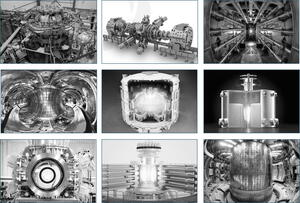ITER hosting private sector workshop
To answer that question, next week ITER will launch an unprecedented workshop featuring the leaders of these private sector initiatives. More than 350 fusion scientists and engineers—including representatives from more than 30 private sector fusion start-ups—will converge on the ITER site to present their achievements, their challenges, and their ideas on how ITER can help them. ITER, largely, will take the role of listener, offering worksite tours, discussions with experts, and brainstorming sessions on how to optimize collaboration while remaining focused on ITER's central mission.
The workshop is a first step, responding to a request from the ITER Council last November. For the Council to call for engagement with private sector fusion initiatives is, in itself, a recognition of the changing fusion R&D landscape. The nature and scope of that engagement is still to be determined.
Optimally, the goal would be to take advantage of the complementarity in public and private initiatives. ITER remains a sort of convergent national lab for all its Members, designed to enable repeatable experiments and long-term testing at industrial scale. By contrast, the private sector can offer smaller scale, more agile initiatives—leading to enabling technologies (e.g., better magnets and control systems), new physics, innovative materials, and concepts that involve a higher risk of failure.
Over time, the ambition is for this collaboration to lead to a "joint public-private narrative"—and, more importantly, a cross-sector approach to fusion innovation—in which the breakdown of information silos and the consolidation of knowledge can drive success.


